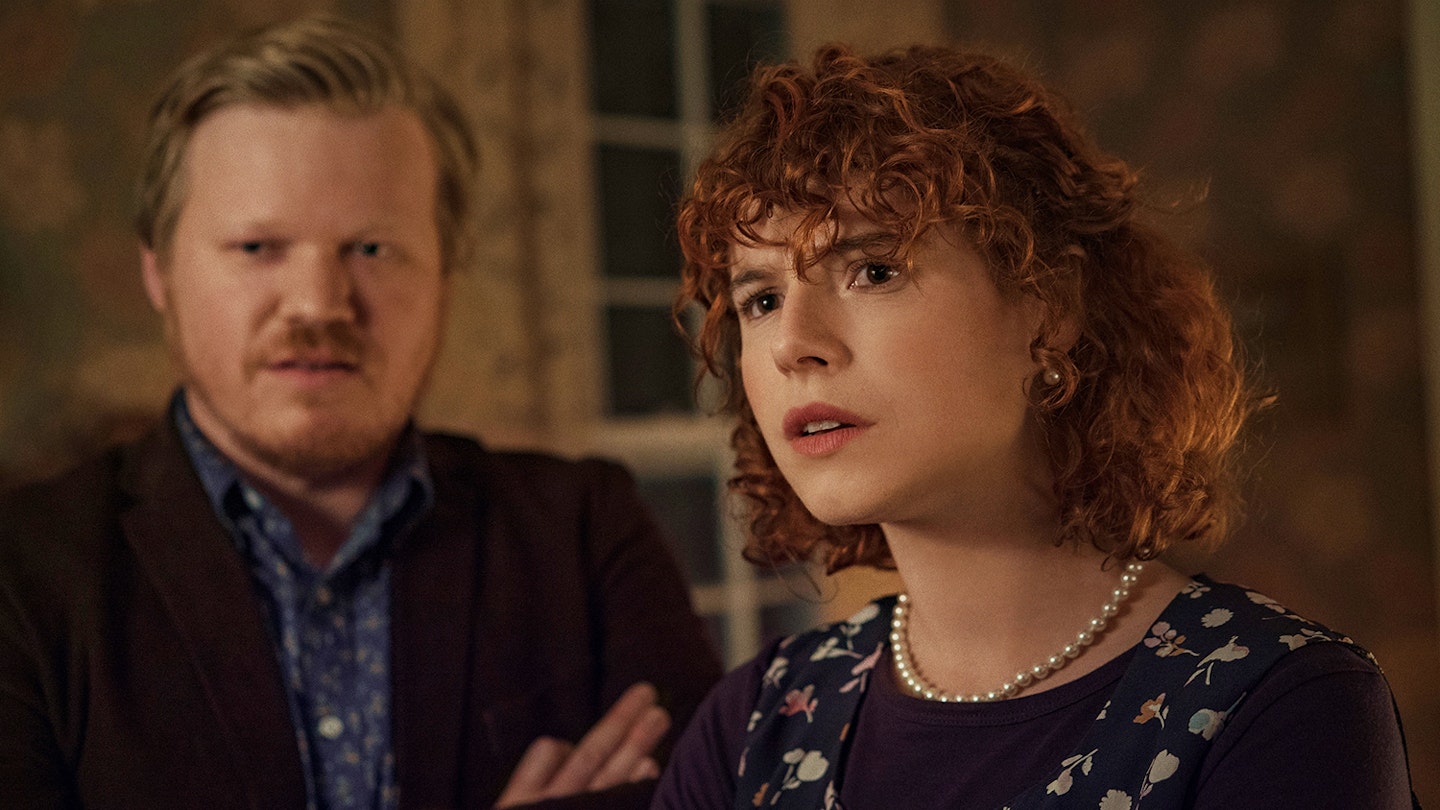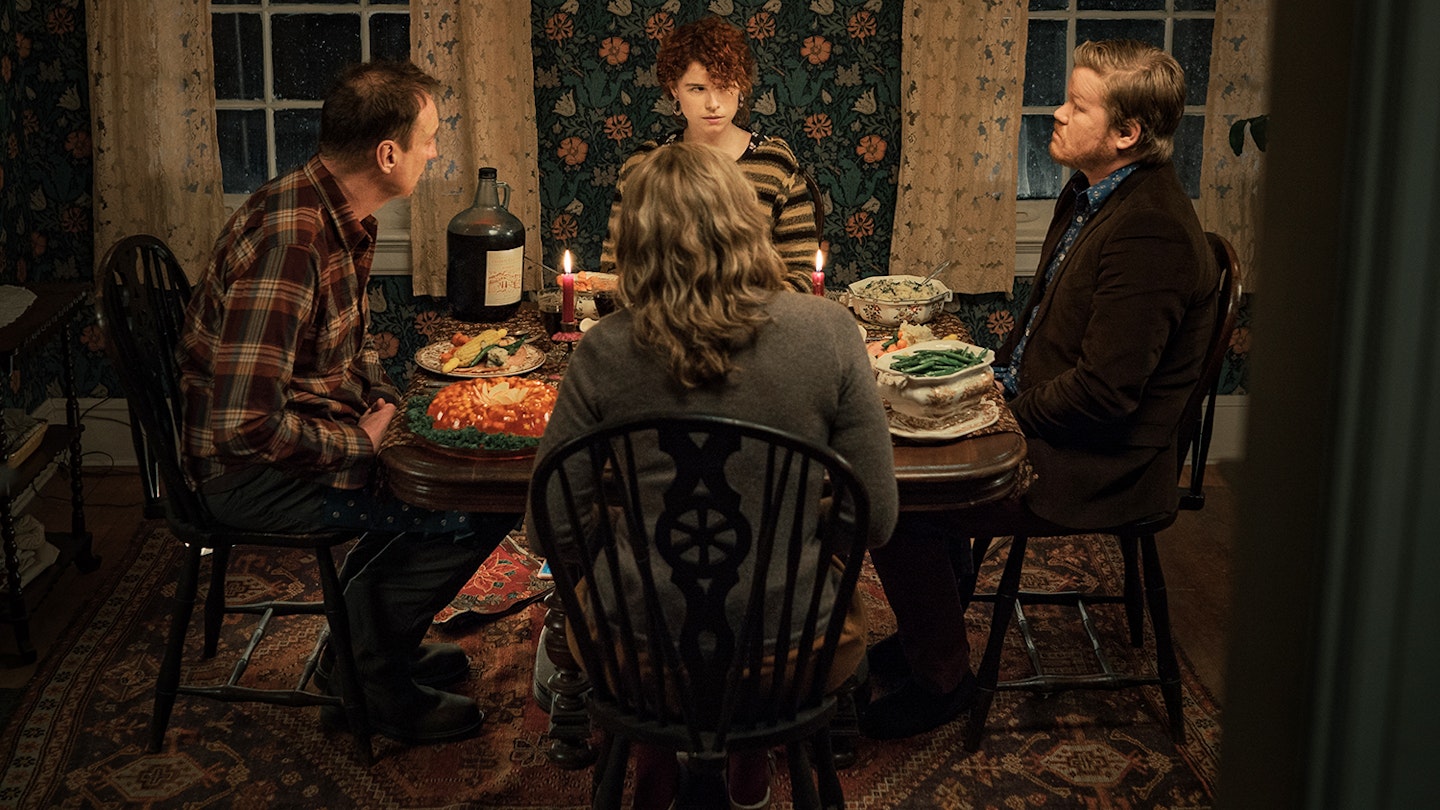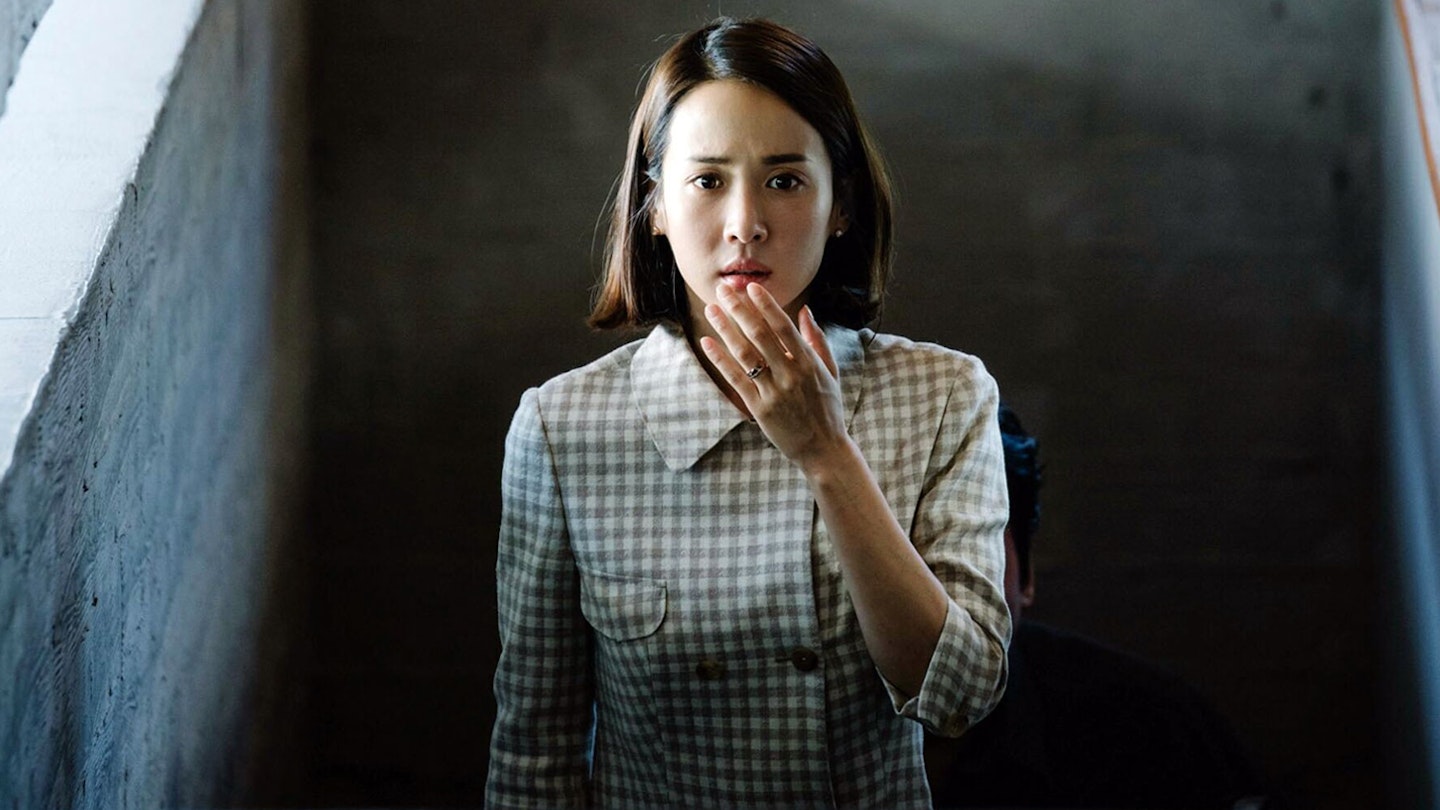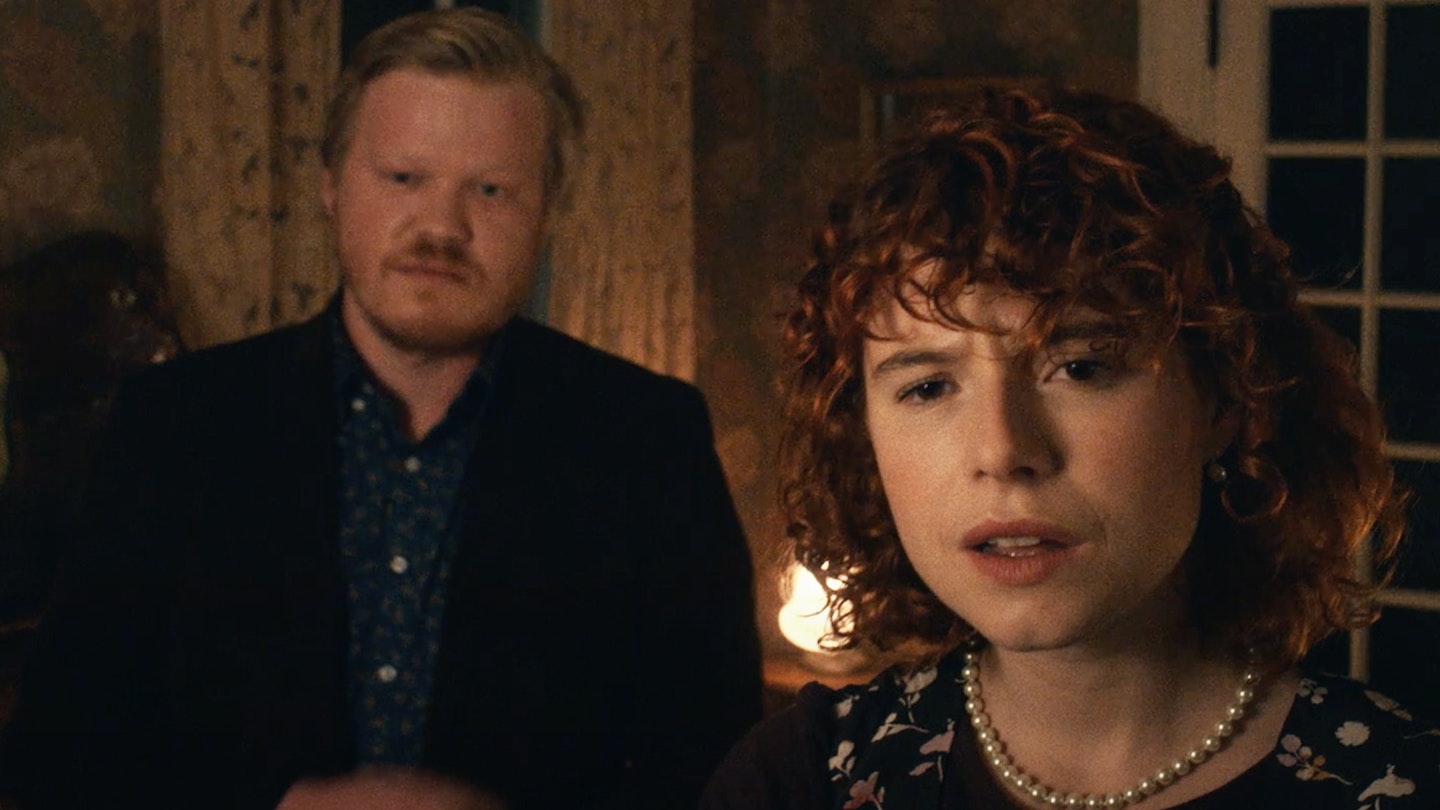The last time Charlie Kaufman attempted to adapt a book, the 2002 meta-mindfuck Adaptation, he was hit with such a brutal writer’s block that he placed himself into the movie as the character, and invented himself a twin brother, too. (Donald Kaufman remains the only fictional person to be nominated for an Oscar.) There’s no sign of him as a character in this, his eighth film as writer and third as director, so we can presume the writing process went a bit better. But Charlie Kaufman is all over it.
Adapted from the 2016 book by Iain Reid (a good fit), Kaufman’s hallmarks are everywhere: an anxious, despairing outlook on relationships, self-worth, and humanity; a withering critique of Western culture; a fourth wall that doesn’t so much break as implode; and an insatiable appetite for the surreal.

Like his 2004 film, Eternal Sunshine Of The Spotless Mind, it begins near the end of a relationship: Lucy (a beautifully understated Buckley) considers in voiceover her “unfixable” relationship with Jake (Plemons, channelling former Kaufman collaborator Philip Seymour Hoffman), on their way to the first meeting with Jake’s mother and father. But, as Lucy (or is it Louisa?) soon observes, something is “profoundly wrong”.
As incisive a director as he is a writer, Kaufman makes hay of his limited budget with economical, artful filmmaking, using smart visual devices to foster an accelerating sense of confusion and reality-bending. Lucy’s internal narration is sometimes interrupted by external dialogue; camera angles are jaunty and disorientating; the action occasionally and inexplicably cuts to shots of a janitor mopping a school corridor, for reasons that only become clear (or not) later in the film.
Kaufman seems uninterested in neat narrative closed loops, and the third act offers none of the jaw-dropping big reveals of the book.
When they finally arrive at Jake’s family farm, the film starts to play like a surrealist farce — as if Alejandro Jodorowsky directed Meet The Parents. Mum (Collette, making her Hereditary matriarch look homely by comparison) is frantic, always pulling at her ears, and deranged. Dad (Thewlis) is a literalist farmer with a pronounced Lancashire accent who thinks “Billy Crystal is a nancy”. Both laugh a little too long for comfort at terrible jokes. Neither seem to age in a linear way.
“There is no objective reality,” Jake notes at one point, which feels like a manifesto for the film, as eventually everything that might be considered ‘plot’ crumbles. Kaufman seems uninterested in neat narrative closed loops, and the third act offers none of the jaw-dropping big reveals of the book, ending on somewhere between a startled bang and a confused whimper.
What to make of a film that quotes Tolstoy, Emerson and Wordsworth, and ends with an interpretive dance, an animated ghost pig, and a naked old man crying in a truck? How do you review a film which itself, perplexingly, contains a film review (a scathing ’70s diatribe from Pauline Kael)? I’m Thinking Of Ending Things feels as much a bitter take on disappointing men and their worthless lives as it is a despairing indictment of Hollywood, Kaufman included — but then trying to fully understand it, in traditional narrative terms, is surely just a wasted effort. It’s possibly Kaufman’s most challenging work yet. Whether that challenge will reward you depends on your taste and tolerance.



